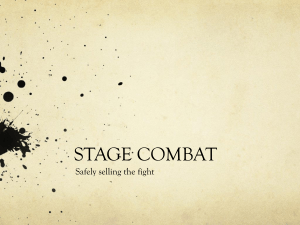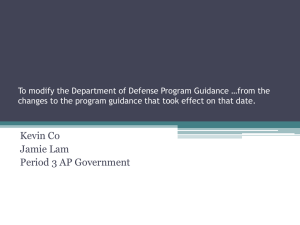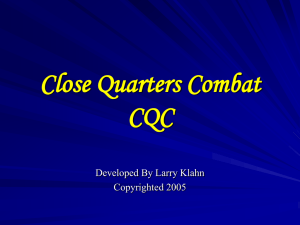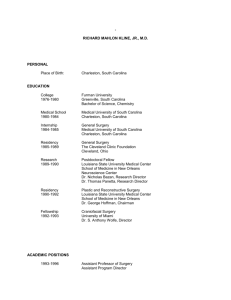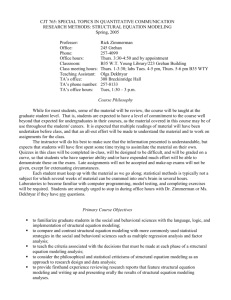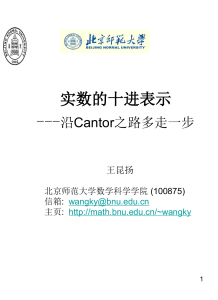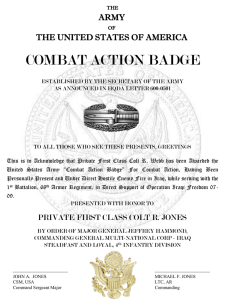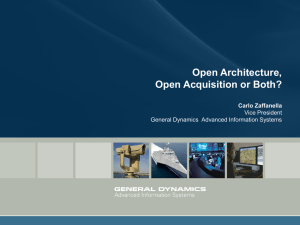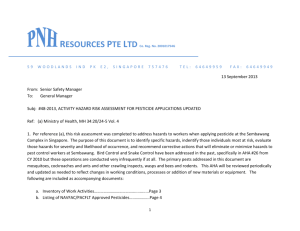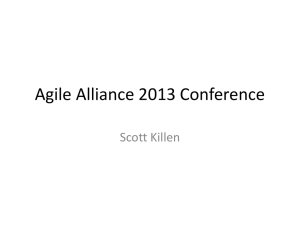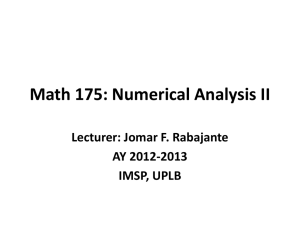Research Presentation
advertisement
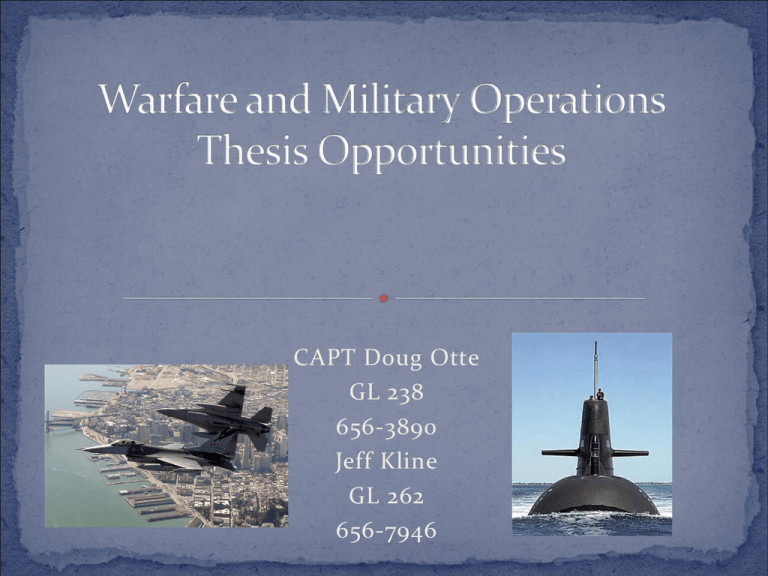
CAPT Doug Otte GL 238 656-3890 Jeff Kline GL 262 656-7946 UCAV threat to Battle Groups Naval Simulation System Scenario Built or Use Mana for CONOP Development Develop multi-ship tactics and threat analysis Explore Swarm vs Swarm Concepts (MANA) Interest by PACFLT, SWDG, NWDC Dr. Tom Lucas Dr. Tim Chung CAPT Doug Otte Jeff Kline Strike Group effectiveness & Survivability using potential Capabilities to include: -Jamming -Decoys -Deception -Intrusion Develop & evaluate potential Tactics from special capabilities PACFLT Interest item NUWC Interest item NAVAIR Interest item OPNAV N81 CAPT Doug Otte Jeff Kline Study of ASW effectiveness and weapon inventories Based on false contact investigation, do we need a less expensive “identifier” weapon? Historical Data analysis, NSS simulation, cost estimation. PACFLT NMAWC NWDC OPNAV Jeff Kline Surveying small combatants for Maritime Security Vessel role Mission analysis for the future combatant ship Capabilities and mission analysis with modeling and simulation Issue - MSC support is provided at a certain level to CNSF units to ship support operations Project - Conduct analysis and prepare brief on the feasibility of potentially reducing the current amount of MSC support to ships Issue - In order to mitigate risk, ships are required to maintain a minimum amount of fuel onboard Project - Given operational AORs, cost, MSC support, etc., conduct analysis and prepare brief on the feasibility of reducing the minimum amount of fuel required onboard ships MSC CDR Pat Burson Impact of Offensive and Defensive Mining capabilities on scenarios of interest and as ISR force multiplier Concept Development and Assessment for employment of new technologies Impact of “Relocating” capabilities Applied Optimization for the Maritime Component Commander in Air Defense, Anti-submarine Warfare, Phase Zero operations, Ballistic Missile Defense, and Strike planning. Cutting edge optimization to provide Maritime Component Commander staff COA generators Four Stage process: - Formulation (thesis) - Graphical interface development - Heuristic development (thesis) - Test and Evaluation (thesis) CTF 72 ONR C2F APL Navy Mission Planner ASW Mission Planner GFS Mission Planner Combat Logistics Planner 1,9: Rota, Spain 5: Limbe, Cameroon 4: Accra, Ghana Logistics Stop 2: Dakar, Senegal Logistics Stop 6: Port Gentil, Gabon Logistics Stop 3: Buchanan, Liberia 7: Luanda, Angola 8: Sao Tome & Principe Proposed route for GFS in GOG UNCLASSIFIED Work with NPS OR Optimization Faculty Initial survey and Assessment of Guam’s defense support systems and their resiliency to attack from an intelligent adversary. Use of “Attack Defender” optimization and network analysis Group of Ships vs. SWARM Active and passive measures for swimmer defense/defeat Optimum employment of deception and countermeasures in defeating threat targeting against ships Combat Modeling, NSS simulation Flaming Datum Search Tactics OPNAV N81 NWDC Generation of Concepts and Concept Development of MIO, AT/FP, SWARM defense, and combat logistics off load SAVAGE Lab Modeling, Simulation, and Visualization Data Analysis Dr. Don Brutzman Jeff Kline CNO PACFLT NWDC Singapore Measuring Readiness for design specifications vs. Readiness against peer competitor. Data Analysis from real world events, exercises, and combat Value assessment New analytical ground PACFLT Chair of Warfare Innovation What if?? What with?? With whom?? Your Call!!! Chair of Warfare Innovation Does it aid the Decision Maker?? Does it help quantify risk?? See Jeff Kline, GL 262 for more information Impact of Offensive and Defensive Mining capabilities on scenarios of interest Concept Development and Assessment for employment of new technologies Impact of “Relocating” capabilities Where and when to employ a maritime Free Electron Laser? Sponsor: Office of Naval Research POC: Mr. Scott Littlefield, ONR Sponsor: N00 War/N8 Proposal: Develop effective metrics for evaluating force combat readiness. Discussion: The Navy is driving toward data-driven, metrics-based decision making; however, it is uncertain that we can collect correct/sufficient data or have a near-peer competitor. Most of our current “readiness” metrics reflect whether or not our current force operates to design specifications. These indicators do not consider whether our current, or planned, force has the capability or capacity to win against current/anticipated near-peer threats. Develop metrics that can be evaluated using available data to accurately assess USN combat readiness against a peer competitor. These metrics should also be of use in sensitivity analysis during exercises and real world events/combat: if we find ourselves not performing to expected standards it will be of use in driving changes to operational plans. Note: Topic may become classified if intelligence data is used in analysis. Sponsor: N00 War/N3/N5 Proposal: Determine how to objectively measure the success or failure and cost-benefit relationship of “Phase 0/Shaping” operations. Discussion: A Cooperative Strategy for 21st Century Seapower relies heavily on the building of trust and confidence between the US military and governments, militaries and populations of other objective method of measuring whether or not the Pacific Fleet’s efforts in this regard are having the desired effect, no effect or unintended negative effects. Analyze Phase 0 operations in the pacific Fleet AOR and propose an objective means of measuring their effects and cost-benefit relationship. EM and other kinetic weapons offer the potential to significantly change the role of Naval Fires in supporting ESG operations. Evolving NSF Command and Control capabilities including Joint and Coalition call for fires using digital communications techniques offer the potential to significantly increase the complexity and tempo of operations. This task could evaluate existing NSFS C2 capabilities and TTP and begin to identify gaps and potential system impacts. An additional task could be to evaluate possible new missions and applications for EM guns given their unique capabilities.

